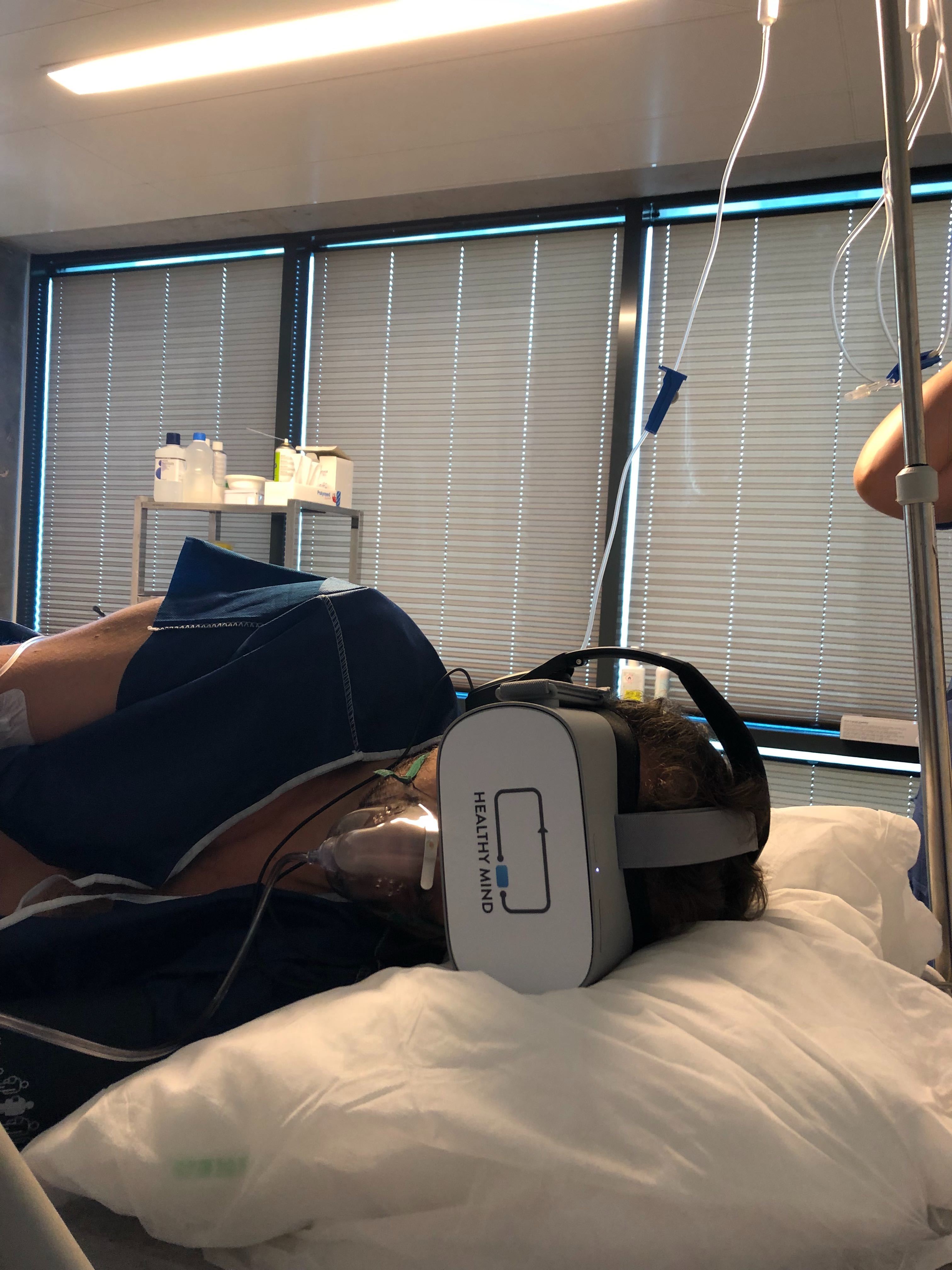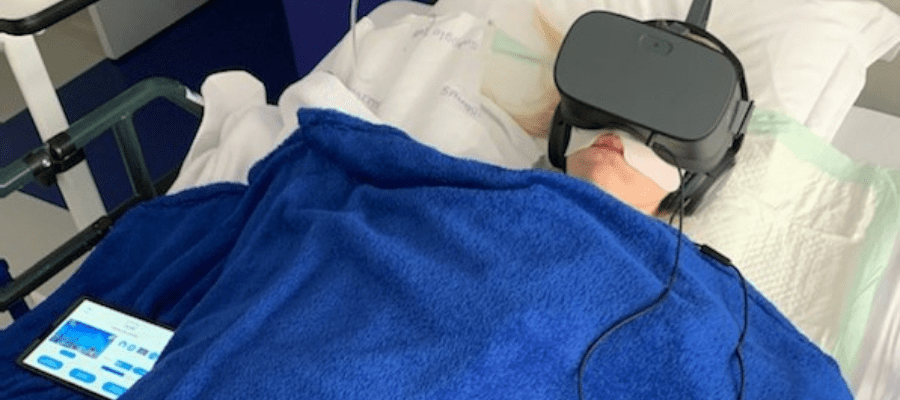Losing weight or stopping smoking thanks to hypnosis? A procedure that has become commonplace! Considered as an effective technique against addictions and other behavioral disorders, hypnosis now integrates the medical field. Therapeutic hypnosis, hypnotherapy or medical hypnosis… As an alternative and complementary practice to conventional medicine, what is medical hypnosis? Mechanisms, benefits and practice: hypnotherapy won’t have any secret for you!
From hypnosis to hypnotherapy
What is the hypnotic state?
Let’s first go back to the etymological origins of hypnosis. The term “hypnosis” comes from the Greek “Hupnoein”, which means “to fall asleep”. Indeed, a person in a hypnotic state is placed in a restricted state of consciousness, between wakefulness and sleep. Unlike the trance state, the hypnotic state is a kind of “unconscious consciousness” : the person’s attention is focused on a few points.
We are not always aware of the fact that our daily state is sometimes like the hypnotic state. This is the case for example when we are day-dreaming. But to voluntarily enter this hypnotic state, a person can for example:
- Consult a hypnotherapist for a hypnosis session, face-to-face or not.
- Use virtual reality tools, based on hypnotic principles.
- Make this state of hypnosis on one’s own, through meditation and self-hypnosis.
Hypnosis as a therapeutic treatment
To reach a therapeutic goal, hypnosis is called hypnotherapy, therapeutic or medical hypnosis. From then on, the objective is to use hypnosis as a treatment, based on the altered awareness of the patient.
In hypnotherapy, the patient is verbally assisted by a hypnotherapist. The hypnotherapist puts the patient into a hypnotic state, and focuses his attention on such things as :
- mental suggestions and associations of ideas;
- images and metaphors ;
- exercises to stimulate the imagination.
Thanks to this verbal help, the patient is more and more relaxed: him or her attention is distracted from pain. The altered state of consciousness tends to reduce the physical and/or psychological pain.
The mechanism of hypnotherapy is therefore palliative, not curative. Indeed, hypnosis relieves and reduces the symptoms of an illness, without resolving its cause. In other words, hypnotherapy does not have any impact on pathology, but on its psychological mechanism: on the way a patient perceives it.

Medical hypnosis in practice
What are the benefits of medical hypnosis?
Thus, hypnosis refers to a hypnotic state. But what are the mechanisms and the benefits for our body and our thinking? On a physical level, hypnosis reduces the production of adrenaline, which helps to relax and reduce the physical pain felt. On the psychological level, it is about the unconscious, to modify our inner behaviors (addictions, traumas, phobias…).
On a concrete level, as a complementary or sedative therapy, what can medical hypnosis relieve, or even help to heal? The benefits of hypnotherapy are numerous :
- reduction of anxiety disorders (depression, anxiety attacks, phobias, insomnia, post-traumatic stress);
- decrease of acute and chronic pain;
- reduction of harmful or addictive behaviors (eating disorders, smoking, alcoholism, etc.).
Today, medical hypnosis is applied in various medical and hospital departments. It has proven its worth in the operating room as an alternative to drug-based anesthesia !
However, it should be noted that the efficiency of hypnotherapy is different from one subject to another. Indeed, medical hypnosis is most effective when the patient is receptive and motivated. On the other hand, it is deeply discouraged to apply it to alcoholics, drug addicts or psychotics (schizophrenia) with an altered awareness of reality.
How to practice medical hypnosis?
Who can practice medical hypnosis? Any medical professional with a hypnotherapy training : doctors, dentists, psychotherapists, psychiatrists, nurses, physiotherapists… The AFEHM (French Association for the Study of Medical Hypnosis), provides this type of training, and also a weblist with all the medical hypnosis practitioners.
In this way, a hypnotherapist is a practitioner using hypnosis to help his patient to reach a better well-being. Let’s not confuse the hypnotherapist with the hypnotist, whose only goal is to make the hypnosis state (such as Messmer)!
The medical hypnosis process differs from one practitioner to another, but a “typical session” is generally divided into 3 parts :
1) Hypnotic induction : the practitioner helps the patient to be physically and mentaly relaxed (hypnotic state).
2) The dissociation/confusion : the hypnotherapist operates on the patient’s unconscious thanks to hypnotic suggestions.
3) Openness/awakening : the hypnosis practitioner gradually takes the patient out of hypnosis, refocusing it on his or her body sensations and feelings.

©Healthy Mind
Virtual reality and medical hypnosis
Virtual reality, perfect field for hypnosis
For the pas few years virtual reality has proven to be a privileged support to medical hypnosis. Indeed, virtual immersion in 3D environments helps the patient to have a break, “disconnect” more easily.
That is why we have designed Healthy Mind virtual reality headsets for medical hypnosis. These digital tools dive the patient in a :
- Visual environment, through ultra-realistic 3D immersive experience (high graphic quality) ;
- Audible ambience, through relaxing music played during the virtual experience.
Thanks to this sensory stimulation, the patient has a break with his external environment : the patient is focused on the virtual hypnotic experience.
Virtual reality tools are based on hypnotic rules
Created with hypnotherapists, sophrologists and neuroscience experts, our VR tools are also based on hypnotic principles.
In particular, we worked with hypnotherapists and sophrologists in order to integrate to our virtuel experiences accompaniments based on :
- Cardiac coherence: a sophrology technique based on breathing.
- Mental suggestions: a hypnotherapy technique, to bring the patient into a state of hypnosis.
Then, virtual medical hypnosis deeply relaxes patients, before, during or after a surgical act, a treatment or an operation. By reducing pain and stress, our virtual reality headsets also reduce the use of analgesic and analgesic medicinal pills. A tool that can be applied to all hospital departments : oncology, pediatrics, emergency, anesthesiology, etc.
The therapeutic treatment by hypnosis proves, more and more, its benefits and its effectiveness. To ease its application and development in the hospital area, we introduce our Healthy Mind virtual solution to the medical profession. Our virtual reality headsets, based on hypnotic rules, are indeed an innovative tool to hypnotherapy. Medical hypnosis can be virtual : we can prove it with Healthy Mind today !







